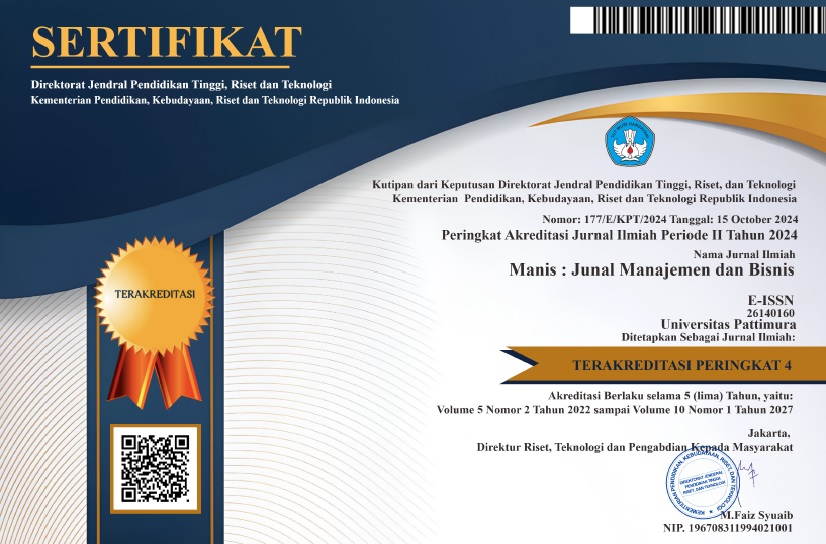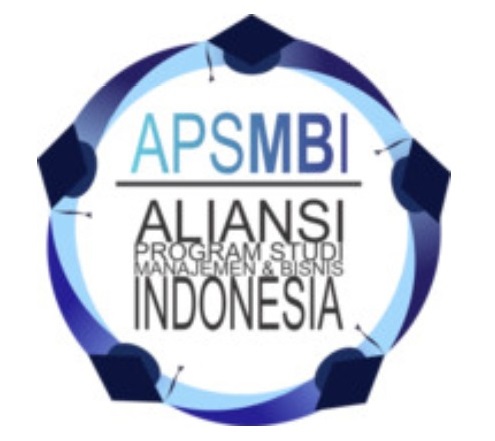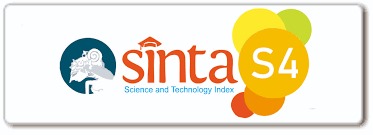THE EFFECT OF PRODUCT KNOWLEDGE AND SOCIAL MEDIA MARKETING ON THE BRAND SWITCHING OF FAST MOVING CONSUMERS GOODS PRODUCTS DURING THE COVID 19 PANDEMIC
Abstract
This research aims to determine the effect of product knowledge and social media marketing on the brand switching of fast moving consumers goods (FMCG) products during the COVID-19 pandemic. The type of research is quantitative with the use of regression analysis techniques and SPSS analysis tools version 23. The number of respondents in this research are 100 FMCG users spread across five villages in Central Maluku Regency.
Based on the research results, social media marketing has a negative effect on brand shifting, this is due to the more information received, the more selective consumers tend to be. The era of the internet today makes consumers more critical and think about the validity of information, especially related to health. Meanwhile, product knowledge is just the opposite. Product knowledge has a positive effect on brand switching. This is simply because product knowledge is more relevant and becomes a reference for shifting health product brands. People are increasingly educated and trusting brands that have a good reputation. A well-known brand is easy to gain the trust of the public or respondents.
Downloads
References
Asnawi, Aisah (2018), Model Holistik Pemasaran Kota Kabupaten Untuk Menguatkan Citra Destinasi Wisata. Disertasi Universitas Padjadjaran.
Assael, Henry, 1995, Consumer Behavior and Marketing Action, Boston : Kent Publishing Co.
Constantinides, E. (2014). Foundations of Social Media Marketing. Procedia - Social and Behavioral Sciences, 148, 40–57. https://doi.org/10.1016/j.sbspro.2014.07.016
Dharmmesta, Basu S (1993), Perilaku Berbelanja Konsumen Era 90’an dan Strategi Pemasaran, Jurnal Ekonomi dan Bisnis Indonesia, September, h. 29-40.
Hanzaee, Heidarzadeh and Sara Ghafelehbashi, 2012, The Role of Product Involvement, Knowledge, and Perceptions in Consumer Purchase Behavior of Counterfeits: Perspective Islamic Country, Journal of Basic and Applied Scientific Research, Vol. 2, No. 1, page 418-425
Kavoura, A., & Stavrianea, A. (2014). Economic and social aspects from s ocial media’s implementation as a strategic innovative marketing tool in the tourism industry. Procedia Economics and Finance, 14(14), 303–312. https://doi.org/10.1016/S2212-5671(14)00717-5
Kim, A. J., & Ko, E. (2012). Do social media marketing activities enhance customer equity? An empirical study of luxury fashion brand. Journal of Business Research, 65, 1480–1486.
Menon, Satya and Khan, Barbara E (1995), "The Impact of Context on Variety Seeking in Product Choices", Journal of Consumer Research, Vol.22 (December), p.285-295
Nitisusastro, Mulyadi. 2012. Perilaku Konsumen dalam Perspektif Kewirausahaan. Bandung: Alfabeta.
Seo, Eun-Ju & Park, Jin-Woo, 2018. "A study on the effects of social media marketing activities on brand equity and customer response in the airline industry," Journal of Air Transport Management, Elsevier, vol. 66(C), pages 36-41.
Shirin, Khosrozadeh; Hanzaee, Heidarzadeh;. 2011. The Effect of the Country-of-Origin Image, Product Knowledge and Product Involvement on Consumer Purchase Decision. Chinese Business Review, 10, 601-615.
Srinivasan, Narasimhan, and Ratcford, Brian T, 1991, “ An Empirical Test of a Model of External Search for Automobiles “, Journal of Consumer Research, Vol. 18, September
Tuten, Tracy L. (2008). Advertising 2.0: Social Media Marketing in a Web 2.0 World. Greenwood Publishing Gr









 This work is licensed under a
This work is licensed under a 